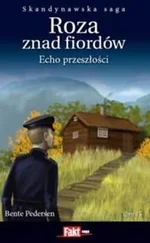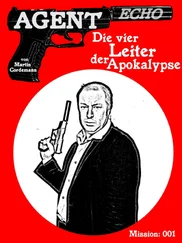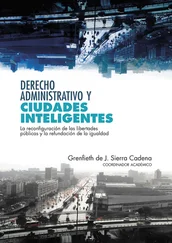But despite the bravado, Suzanne thought the whole experience had shaken David Preston. She left with the feeling that her conversation with him had been less indiscretion on his part than a sort of catharsis. Whatever threats had been barked at him down the telephone line from Brussels had taken their toll. When she left him, it was four thirty in the afternoon in his showroom and he was on his third quite large gin and tonic. And the alcohol inside him did not yet have the tremor in his drinking hand under control.
An internet search revealed nothing about Martens and Degrue beyond what she had already assumed she would find. It was a fronting company, basically an alias for an enterprise that was publicity-shy about whatever business it was really up to.
‘I had more success with Cardoza Associates,’ she told me. ‘They bid at auctions all the time, all over the world. Mostly what they buy is religious art.’
‘It’s a fair hop from religious art to the wreck of a dubious boat,’ I said.
She nodded. ‘Particularly when you consider the source of their funding. Everything Cardoza Associates successfully bid for is paid for by the Vatican Bank.’
‘So you went to France to find out about Martens and Degrue?’
‘No,’ she said. ‘You haven’t been listening properly. I told you, I went to France on the trail of Harry Spalding, to find out what I could about the Jericho Crew.’
‘A cold trail,’ I said.
Suzanne sipped from her drink and smiled. ‘You’ve no idea how cold,’ she said.
Spalding’s family had been in Rhode Island for generations. They had been among the original settlers of the colony. They were wealthy by the time of Harry’s birth. But they were very quiet and discreet. Just about the only club or organisation they belonged to, according to Suzanne’s research, was a debating society. Several prominent Rhode Island families belonged to this society. Its character seemed not just exclusive, but to have some sort of dynastic element to it. The builder of Harry’s boat, Josiah Peitersen, was among its members.
‘There were initiation rites,’ Suzanne said. ‘There were elaborate rituals. And even in the heyday of the clandestine gathering and the exclusive members’ club and the elite sorority in Eastern Seaboard America, which this was, there was an incredible degree of secrecy surrounding this society.’
‘It sounds like a cult,’ I said. ‘What was it called?’
‘If it had a name, and I think it almost certainly did, it was kept a very great secret. When it was referred to, it was referred to only as The Membership.’
‘Does it still exist?’
She shook her head. ‘No. It was destroyed in the time of Prohibition, its premises torn down and gasoline poured over the wreckage to burn it where it lay. Bulldozers trundled in afterwards to eradicate all trace of it from the earth.’
‘So it was a drinking club.’
‘No, Martin, it was not. The Prohibition legislation was the flimsiest of pretexts for its destruction. There were G-men present. There were also two Jesuit priests. One of them was a powerful exorcist from the Diocese of New York. You said cult just now. I think occult would be truer to history. I think that Harry Spalding’s family were Satanists, practitioners of black magic going back perhaps to the time of the New England witch trials and the burnings. The report I read said nothing about sowing the ground with salt in the wake of the bulldozers. But I wouldn’t be surprised if they did.’
‘So Frank Hadley was right with his talk of witchcraft.’
‘Perhaps.’
‘There’s one good way to find out,’ I said. ‘We ask Peitersen. He’s the self-elected expert on the Dark Echo . We ask him what his great-grandfather was up to when he debated with the Spalding clan.’
If Suzanne’s smile had been unconvincing earlier, now it was sickly. And her face was as pale as bone. ‘We could ask him. But there would be no point. Because Jack Peitersen is not who he says he is. Jack Peitersen does not exist.’
I groaned. ‘You’d better tell me what you’ve learned about Peitersen.’
‘I’ll get to Peitersen,’ she said. ‘First, I have to tell you about the Jericho Crew.’
‘Can I take it Waltrow and Tench were members?’
‘To Harry Spalding, they would have been Second Lieutenant Waltrow and Corporal Tench. And they were in it, alright, Martin. They were in it to the bitter end.’
Five
She had been anything but reassured by the visit to the boatyard at Lepe. She had been concerned on the way there about how I would react to setting foot once more on the Dark Echo . And when we arrived and were greeted, she had thought there was something entirely bogus about Peitersen. It was as though, she said, on the other side of the lobster pot and saltbox Yankee charm, there was nothing really there. His smile, she said, was like a sign saying ‘vacant’ in a brightly lit motel window. Despite my impression of how they got on, she had disliked him even more violently than I had. But she did not just dislike him on sight. She distrusted Peitersen, too.
In the aftermath of the Lepe trip, she felt an obligation to learn as much as she could about the mystery of the boat to which my father and myself seemed so determined to entrust our lives. Despite her detective skills, which were sharp and well practised, she said that she felt a certain hopelessness in doing so. She said it seemed it was unlikely to matter what she discovered. The scheme had already gained too much momentum for her to be able to arrest events now. The whole ill-advised, dangerous adventure had about it the pre-ordained nature of fate. She also had grave doubts about deceiving me. The Collins work was done and dusted. But I did not know that, did I? She was able to persuade herself with the reasoning that if she found nothing, I need never know about France and the deception. But if she did find something, it might help prevent my father and me sailing into some horrible tragedy. There were all sorts of flaws and contradictions in her logic, Suzanne knew. But after her encounter at the Lepe yard with Peitersen, she felt that she had to act.
She learned about the war service of Waltrow and Tench first from their obituaries and then in more detail from American military records she was able to bring up on computer, using BBC access, still claiming she was looking for information to do with her Michael Collins programme research. Her pretext was the IRA’s purchase on the black market of surplus American rifles after the 1918 armistice. It was a trade that increased steadily throughout the Irish Civil War. Nobody questioned this supposed line of enquiry. It sounded plausible enough. Searches in the American military archive for Waltrow, Tench and Spalding brought up some details about the Jericho Crew and the tantalising information that almost ninety years after it had been compiled, the file describing in full their activities in France and Flanders was still classified.
‘I learned they had a base,’ she told me. ‘It wasn’t an official base, a barracks or anything like that. It was a barn belonging to a farm about five miles to the rear of the Allied trench system near the village of Béthune in northern France. The land is still agricultural. The original farm still exists. They would gather in this building. If any of them became detached from the main party on a mission, or were left behind or lost, that’s the spot they would head for as soon as they could. Water, tinned provisions, fuel and spare clothing, and even weapons and ammunition were kept there.’
‘I’m amazed the stuff wasn’t all lifted by Allied units passing the barn. Even if they’d had a guard on it, the rations in particular must have been a temptation. Soldiers in wartime are not noted for their honesty over that sort of thing. Pilfering was rife on the Western Front, even among members of the same company, never mind the same battalion.’
Читать дальше












